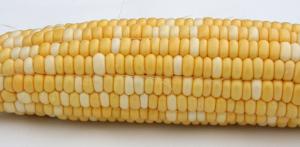Introduction
Transgenic plants are an important innovation that has transformed agriculture and biotechnology over the past three decades. Genetically modified crops are now commonly grown around the world, and transgenic plants have provided solutions to some of the most pressing challenges facing the agricultural industry. In this article, we will explore what transgenic plants are, their advantages and disadvantages, and their impact on agriculture and biotechnology.
What are Transgenic Plants?
Transgenic plants are those plants that have had their genetic material modified through the introduction of genes from other organisms. This genetic engineering enables the plants to exhibit new traits that are beneficial for agriculture, such as improved resistance to pests, diseases, and environmental stresses. Transgenic plants are created by isolating the desired gene from one organism and inserting it into the DNA of a plant cell. The modified cell is then grown into a plant, which will carry the novel trait within its genetic makeup.
Advantages of Transgenic Plants
There are several advantages to transgenic plants. First and foremost, they have dramatically improved the productivity and sustainability of agriculture. Crops that have been genetically modified to be resistant to pests, such as Bt cotton, require fewer pesticides and therefore reduce the risk of environmental contamination. Similarly, crops that have been engineered to tolerate environmental stresses, such as drought or salinity, can grow in areas that were previously unsuitable for cultivation. This expands the range of crops that can be grown, increasing agricultural diversity and reducing the risk of crop failure due to climate change or other environmental factors. Transgenic plants have also provided new opportunities for the production of biofuels and bioplastics, which can reduce our dependence on fossil fuels.
Disadvantages of Transgenic Plants
Despite their benefits, transgenic plants are also controversial due to concerns about their safety, regulation, and potential impact on the environment. Critics argue that introducing foreign genes into plants could have unintended consequences, such as creating new allergens or disrupting ecosystems. There are also concerns about the impact of genetically modified crops on biodiversity, as some strains may outcompete native species or transfer their modified genes to wild relatives through crossbreeding. Finally, there are concerns about the corporate control of agriculture, as transgenic plants are typically owned and patented by large agribusinesses. This has led to debates about intellectual property rights, access to seeds, and the impact of corporate power on food security.
Impact on Agriculture and Biotechnology
The impact of transgenic plants on agriculture and biotechnology has been significant. By improving crop yields and sustainability, transgenic plants have contributed to food security and poverty reduction, particularly in developing countries. They have also opened up new markets for biotech companies and fostered innovation in genetic engineering and other fields. However, the controversies surrounding their use have also led to increased regulation and public scrutiny, particularly in Europe and other regions where there is strong opposition to genetically modified crops. As such, transgenic plants continue to be a source of debate and controversy, but their impact on agriculture and biotechnology is undeniable.
Conclusion
Transgenic plants are an important tool for addressing the challenges facing agriculture and biotechnology in the 21st century. Their ability to improve crop productivity, increase sustainability, and provide new opportunities for innovation has made them a valuable asset for farmers, researchers, and industry professionals alike. However, concerns about their safety, regulation, and ethical implications must be addressed in order to fully realize the benefits of this technology. As such, the debate over transgenic plants will continue to shape the future of agriculture and biotechnology for years to come.

 how many times do yo...
how many times do yo... how many planted tre...
how many planted tre... how many pine trees ...
how many pine trees ... how many pecan trees...
how many pecan trees... how many plants comp...
how many plants comp... how many plants can ...
how many plants can ... how many plants and ...
how many plants and ... how many pepper plan...
how many pepper plan...





























